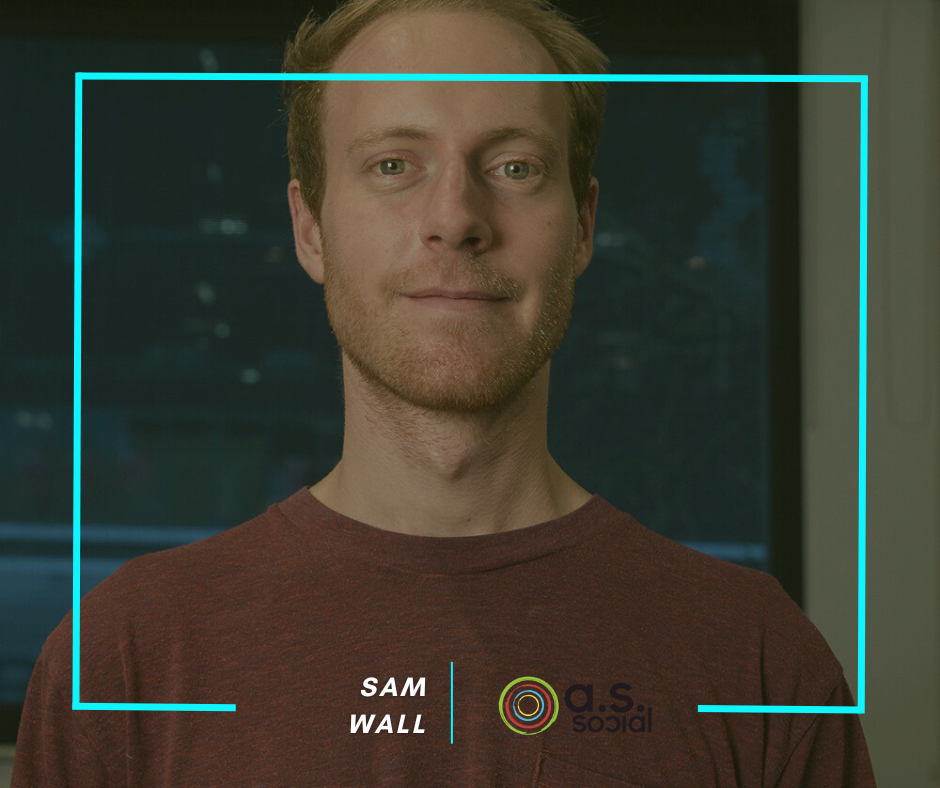
A.S. x Interview Series - Sam Wall
Autistic kids become autistic adults – but where’s the support for adult life? How do you navigate renting, relationships?
C: As a long-time friend and business partner, I’m delighted to feature you first in this series as founder of A.S. Social! Sam, what’s the core vision behind this venture?
S: A.S. started from a very personal need – a dedicated social network for autistic adults, by autistic adults. I wanted a space where we could connect authentically, share experiences without masking, and build community on our own terms. No clinical filters, just us.
C: Considering that vision, how does A.S. Social translate it into tangible success? What gaps are you addressing?
S: Right now, most autism support is either clinical or skewed toward kids – leaving adults navigating a desert. Post-COVID, digital access became critical, and we’d already built our platform with meticulous care. Research like Howard et al. (2019) confirms what we know: autistic adults engage and retain information better online than in overwhelming face-to-face settings.
But the bigger gap? Who designs the solutions. Virtually nothing had meaningful input from autistic people. We changed that – our features, groups, and learning modules are co-created with our community. And geography shouldn’t dictate support. The NDIS does great work but remains metro-centric. A.S. reaches regional towns – offering safe connection and skill-building, anywhere.
C: As we know, the "disability" sector has pathways but glaring omissions. What’s the lived reality you’re centering in A.S.’s work?
S: Autistic kids become autistic adults – but where’s the support for adult life? How do you navigate renting, relationships, or burnout? The NDIS funds vital services, but social capital – genuine connection, peer advocacy, everyday coping strategies – often falls through the cracks. We bridge that. Our users consistently highlight two needs:
- Authentic autistic-to-autistic connection – not just therapy, but friendship, shared interests, mutual understanding.
- Accessible, non-clinical resources – tools that don’t require a diagnosis invoice or a support coordinator to access.
C: Given your unique lens – where do you see society’s biggest friction points? And crucially, what works?
S: We’ve got more neurodiversity posters in office kitchens than ever – but is that translating? Friction points are everywhere:
- Performative Inclusion: Companies love "autism awareness" branding but resist flexible hours, sensory adjustments, or ditching rigid communication norms.
- The Leadership Gap: Decisions about us still happen without us. Policies, services, even research – rarely led by autistic voices.
- The "Childhood" Bias: Support evaporates after 18. Where are services for autistic adults navigating parenthood, aging, or career shifts?
- Sensory Warfare: Fluorescent lights, chaotic noise… society’s built for neurotypical tolerance. It’s exhausting.
What actually works is refreshingly straightforward:
- Centering Lived Experience: Platforms like A.S. work because we design as autistic people – text-first communication, sensory-friendly interfaces, no forced small talk.
- Radical Flexibility: Letting people work/engage in ways that suit their neurology (async options, stimulus control, output-focused goals).
- Peer Power: Connection between autistic adults is transformative – it builds self-advocacy and shared resilience. That’s our core.
- Low-Cost Adjustments: Dimmed lights, quiet hours, clear visual guides – simple fixes with massive impact.
C: As a founder navigating this space – what tools keep you equipped?
S: Beyond noise-cancelling headphones and weighted blankets? My voice. Learning to articulate my needs without shame – "I need this in writing," "Can we skip the networking mixer?" – changed everything. It’s hard, but business (and life) works better when I honor my wiring.
C: And finally – what’s soaring on A.S. Social’s horizon for 2025?
S: Connecting 250+ participants into thriving micro-communities – growing our forest, one authentic connection at a time.
C: Current favorite plant?
S: My towering Lemon Myrtle! I use it in everything – teas, stews, baked goods… even a leaf in my water bottle. It’s resilience and versatility goals.


.gif)
.gif)
.gif)